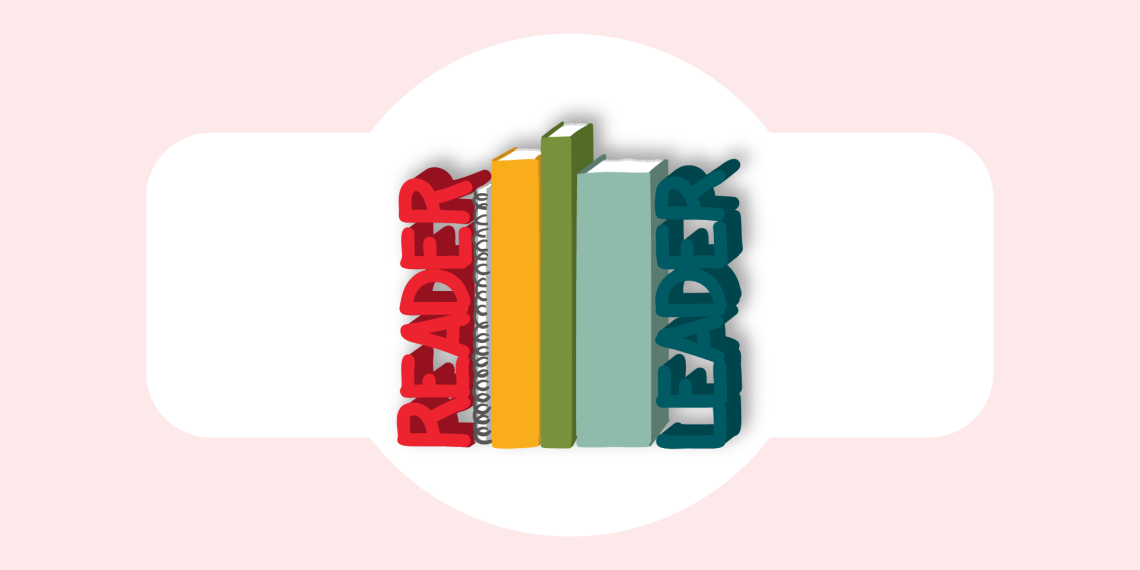he Pew Research Center recently reported that the number of non-book readers has nearly tripled since 1978. According to the National Endowment for the Arts, all adult Americans are reading less. Yet many of our greatest leaders attribute their successes to a love of books. By reading broadly and deeply we can cultivate the skills and traits that are crucial for our world’s future leaders.
Many Leaders Attribute their Successes to a Love for Reading
Many historians consider Abraham Lincoln the greatest president. This remarkable man was known in his community, and later throughout the world, for his wit, wisdom, honesty, and high moral character. Lincoln’s rise to power was not because of his success in academics; in fact, he had just one year of formal education. Instead, he read. His neighbors recalled that as a young man he walked many miles just to borrow a book. In his pursuit for a career as a lawyer, he read every law book that he could get his hands on. Though self-taught, he was able to pass the bar exam and become an accomplished lawyer.
Lincoln’s not alone. Many of our world’s leaders attribute reading to their successes. When asked by a reporter if he read himself to sleep, President Harry S. Truman responded, “no young man, I like to read myself awake.” Winston Churchill’s decision-making power came from reading world almanacs.
Entrepreneurs and media moguls have all expressed a similar love of reading. Oprah Winfrey attributes her many successes to an early love for books. When she accepted the United Nations Association of the United States of America Global Humanitarian Award she said, “As a young girl in Mississippi, I had big dreams at a time when being a Negro child you weren’t supposed to dream big. I dreamed anyway. Books did that for me.” Warren Buffet apparently spends 80% of his workday reading. And while Amazon is today an all-goods behemoth, it was reportedly launched not because Jeff Bezos wanted to be an entrepreneur, but because he loved books.
James' picks for Leadership Books
Churchill on Leadership
—Steven F. Hayward
The Endurance
—Caroline Alexander
Team of Rivals
—Doris Kearns Goodwin
How will You Measure Your Life
—Clayton Christensen
The Compound Effect
—Darren Hardy
“More than at any other time, when I hold a beloved book in my hand my limitations fall from me, my spirit is free.” —Hellen Keller
The Many Benefits of Reading
Reading increases our understanding of language, improves comprehension and communication, increases our vocabulary, makes us aware of current events, and provides opportunities to enhance imagination. It makes us more empathetic and helps us develop situational awareness.
Here are a few of the many, many benefits that we gain from reading:
-
Reading can fend off Alzheimer’s
-
6 minutes of reading can reduce stress by 68%
-
Empowers you to empathize with other people
-
Increases your vocabulary and comprehension
-
Lowers blood pressure and heart rate
-
Prevents cognitive decline
-
Helps alleviate depression symptoms
-
Readers live 2 years longer on average
-
Improves brain connectivity
-
Aids in sleep readiness
Reading is therapeutic! It could minimize America’s serious health care burden (mental and physical). Big benefits can come from a small investment.
James' picks for Non-Leadership Books
Unbroken
—Laura Hillenbrand
Hillbilly Elegy
—J.D. Vance
Educated
—Tara Westover
Born to Run
—Christopher McDougall
The Buzz About Bees
—Jurgen Tautz
“The ability to read awoke inside me some long dormant craving to be mentally alive.”
—Malcolm X
How to incorporate more reading into your routine
If reading is a new habit for you, here are some steps to get you started.
-
Identify your objective. Determine what topics will provide you with the benefits you are seeking, like serving your personal goals and interests. Think of a topic that interests you, a skill you’d like to learn, or a historical event you want to better understand.
-
Ask for suggestions. Some of my favorite reads have come from asking those in my friend and family circles what they are reading.
-
The book is just the beginning. When I’ve settled on a book, I then dig into what others have experienced from reading in these areas. Watching interviews with the author, or reading articles and posts on the same topic, can offer increased understanding and a new perspective.
-
Research what others with similar interests are reading. Amazon and GoodReads are excellent sources for book reviews. But take the reviews with a grain of salt. We all have different interests, values, opinions and passions.
- Read for satisfaction and enjoyment. If you love it, you’ll stick with it!
So go at it! Grab a book. Find a nook. Enjoy the adventure of making and developing a better you.
References
Benefits of Reading Books: How It Can Positively Affect Your Life—Healthline
10 Benefits of Reading: Why You Should Read Every Day—Lifehack
The Health Benefits of Reading—Medium
People Who Read Books Live Almost 2 Years Longer, Study Finds—ScienceAlert
James Neider
Three years, 300 stories and over 70,000 people have taught us how the power of story, the impact of teams, and the hard work of health care connects with the world.
Hospitalist and Graduate Medical Education director of quality and safety Ryan Murphy explains how Accelerate’s playlists are an infinitely modifiable, curiosity-satiating approach to unifying learners behind a single vision. With more than 15,000 visitors in the last 12 months, it’s worth taking a look.
It’s been almost three years since Accelerate began (wow!). We thought it was a good time for an update. If you've been here before, you'll see that we’ve made changes to the site based directly on your feedback. Here we share how we've improved the site. Thank you for sharing your opinions, and keep them coming!
